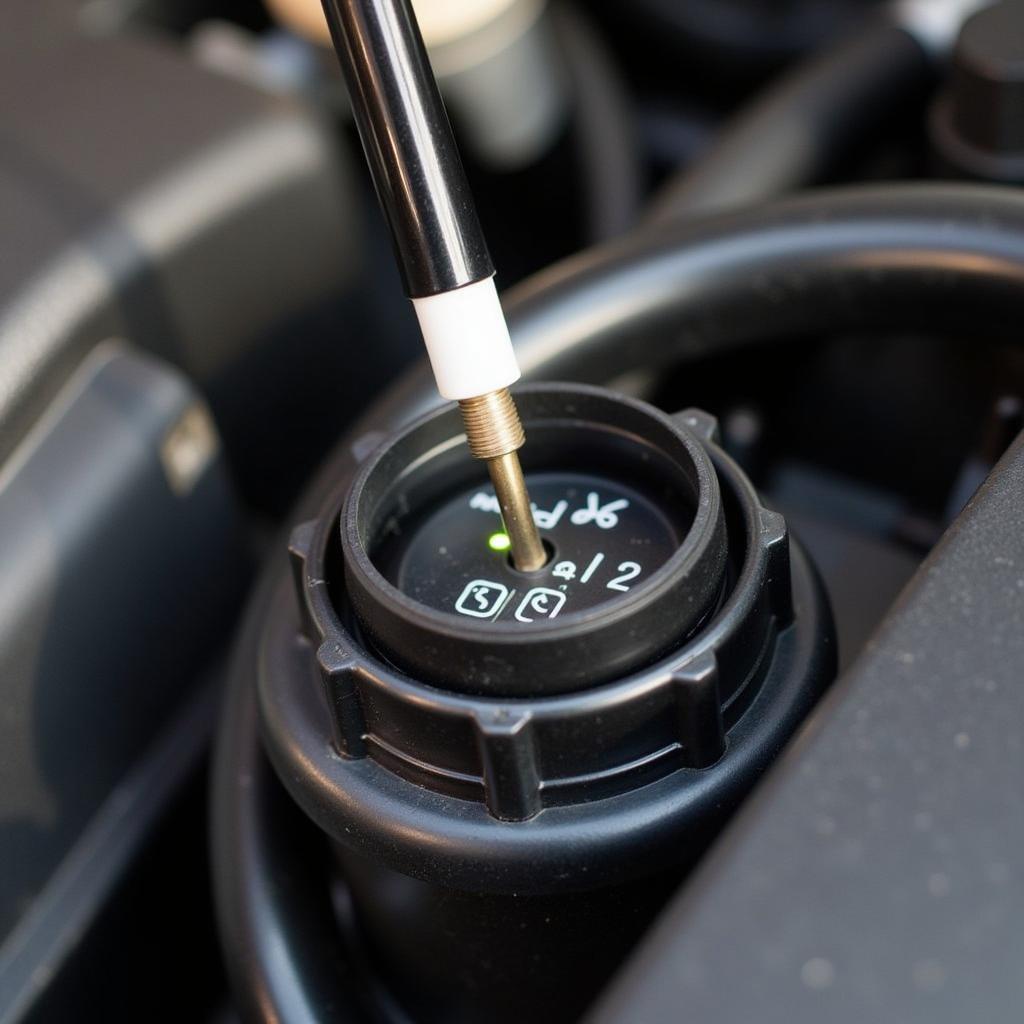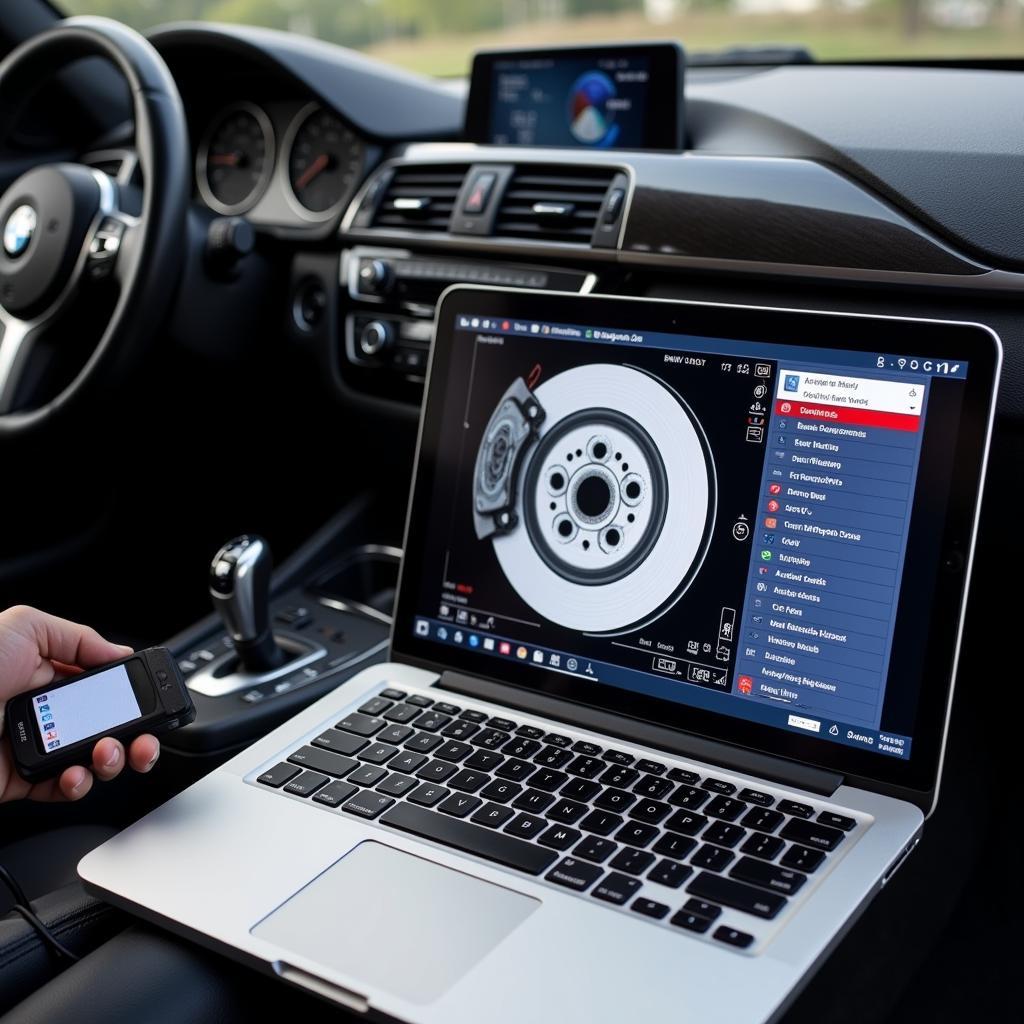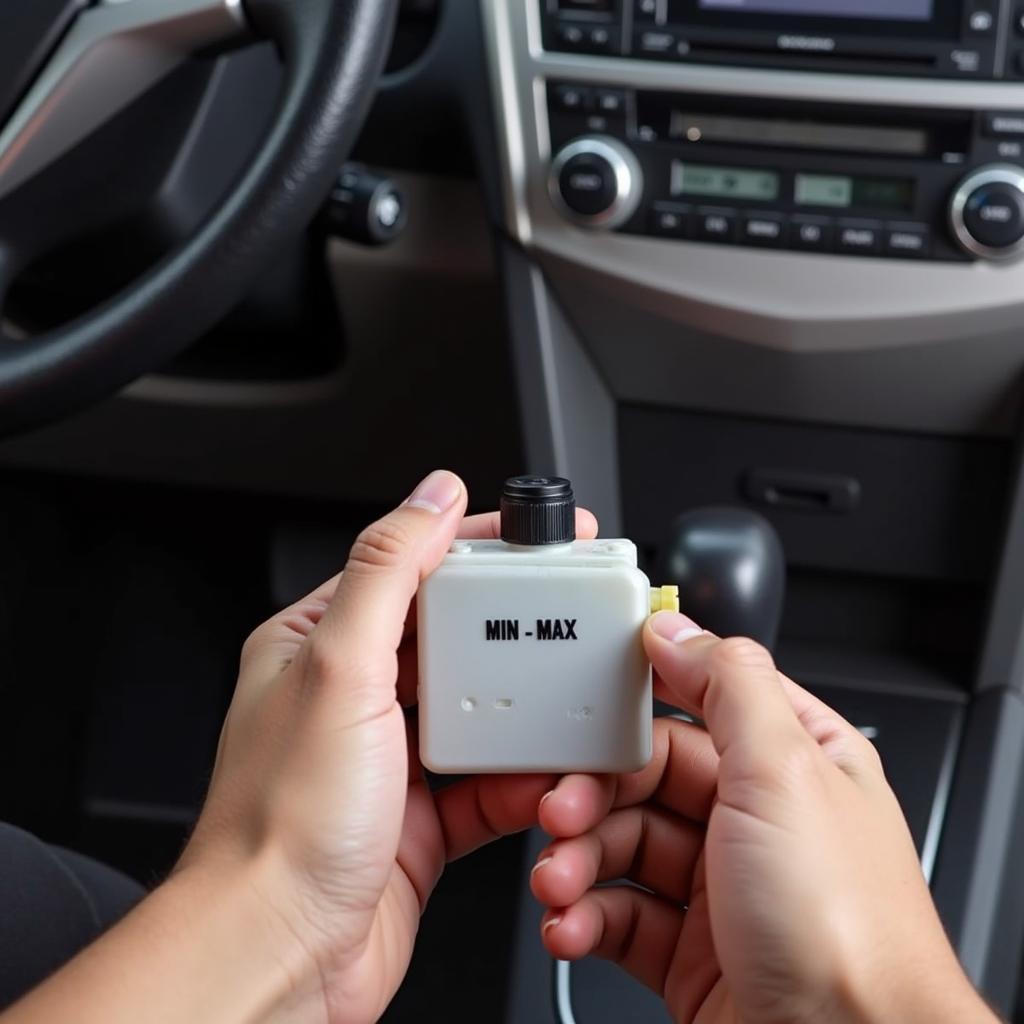The dreaded bmw brake warning light can send shivers down any driver’s spine. This article will delve into the various reasons behind a bmw brake warning, offering solutions and preventative measures to keep your BMW stopping safely and reliably. We’ll explore everything from simple fixes to more complex issues, empowering you to understand and address this critical warning.
If your BMW won’t start alongside a brake warning, checking the brake fluid level should be your first course of action. A low fluid level is a common culprit. Also, inspect your brake pads for wear and tear. Severely worn pads can trigger the warning light. bmw brake warning light won’t start
Decoding the BMW Brake Warning Light
The bmw brake warning light isn’t just a single, monolithic indicator. Different variations of the light can indicate different problems. A steady light might suggest low brake fluid, while a flashing light accompanied by a chime could signify a more serious issue with the braking system, such as a faulty ABS sensor or a problem with the electronic parking brake. Understanding these nuances can save you time and potentially costly repairs. Knowing how to reset bmw brake warning light can also be helpful after addressing the underlying issue.
Common Causes of a BMW Brake Warning
A number of issues can trigger a bmw brake warning, ranging from simple maintenance needs to more complex mechanical or electronic faults. These include low brake fluid, worn brake pads, faulty brake sensors, issues with the ABS (Anti-lock Braking System), problems with the DSC (Dynamic Stability Control) system, or even a malfunctioning brake light switch.
 BMW Brake Warning – Low Brake Fluid
BMW Brake Warning – Low Brake Fluid
Troubleshooting Your BMW Brake Warning
Begin by checking your brake fluid reservoir. Ensure the fluid level is within the recommended range. Next, inspect your brake pads for wear. If the pads are thin, they need to be replaced. If these initial checks don’t reveal the problem, it’s time to delve deeper. This might involve inspecting the brake sensors, checking the ABS system, or diagnosing the DSC system. A professional diagnostic scan can pinpoint the exact cause of the warning.
Preventative Maintenance for Your BMW Brakes
Regular maintenance can prevent many bmw brake warning issues. This includes routine brake fluid flushes, timely brake pad replacements, and periodic inspections of the entire braking system.
Advanced Diagnostics and Remote Software Solutions
In some cases, the bmw brake warning might stem from software glitches or faulty control modules. Here, specialized diagnostic tools and remote software programming can be invaluable. These advanced solutions can identify and rectify electronic issues within the braking system, often without the need for extensive physical repairs. bmw brake warning disable discusses some of these advanced techniques.
“Regularly updating your BMW’s software is crucial for optimal performance and can prevent many electronic issues, including those related to the braking system,” advises John Miller, Lead Automotive Diagnostic Technician at Bavarian Auto Solutions.
When to Seek Professional Help
While some bmw brake warning issues can be addressed with DIY solutions, others require professional expertise. If you’re uncomfortable working on your brakes, or if the problem persists after basic troubleshooting, it’s best to consult a qualified BMW technician. They have the knowledge, tools, and experience to diagnose and repair complex brake problems effectively.
 BMW Brake System Diagnostic
BMW Brake System Diagnostic
Conclusion
Addressing a bmw brake warning promptly is vital for your safety and the longevity of your vehicle. By understanding the various causes, performing regular maintenance, and knowing when to seek professional help, you can keep your BMW’s braking system in top condition, ensuring a safe and enjoyable driving experience. Remember to check your bmw brake warning indicator regularly.
FAQ
- What should I do if my bmw brake warning light comes on? Check your brake fluid and brake pads first. If those are okay, seek professional help.
- Can I drive my BMW with the brake warning light on? It’s not recommended. The light indicates a potential problem that could compromise your safety.
- How often should I replace my BMW’s brake pads? It depends on driving habits and conditions, but generally every 30,000 to 70,000 miles.
- How much does it cost to fix a bmw brake warning issue? The cost varies depending on the underlying problem.
- Can a low battery cause a bmw brake warning light? While unlikely, a severely low battery can sometimes cause warning lights to malfunction.
- How can I prevent bmw brake warning issues? Regular maintenance, including brake fluid flushes and timely brake pad replacements, is key.
- What does a flashing bmw brake warning light mean? It often signifies a more serious issue, such as a problem with the ABS or DSC system. BMW Brake Warning Light Won’t Start? bmw brake warning light won& 39 could provide further information.

